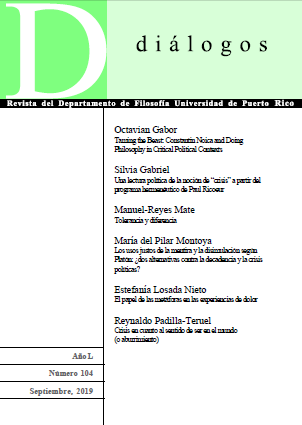Abstract
In the Republic and in the Laws of Plato, the possibility of establishing a political regime able to avoid the emergence of tendencies responsible for the decadence and the profound moral, political and social crisis in Athens of his time, occurs through the submission of the private sphere to a strict state regulation. This effort is materialized in the elaboration of a series of strategies, destined to channel the wishes and to limit the strength of the tendencies opposed to rational city planning. Presided by an inquiry about the nature of the wishes and passions, this effort is marked by the consciousness of the limits of the rational discourse against the nature of the desires of the body. Nevertheless, this consciousness is expressed in different ways in the Republic and in the Laws: whereas in former those limits are insinuated through the authorization the State confers to the magistrates to employ the lie and deception for the sake of the governed, the legislators of the Laws will induce its citizens to perform the art of dissimulation.Downloads
Download data is not yet available.

